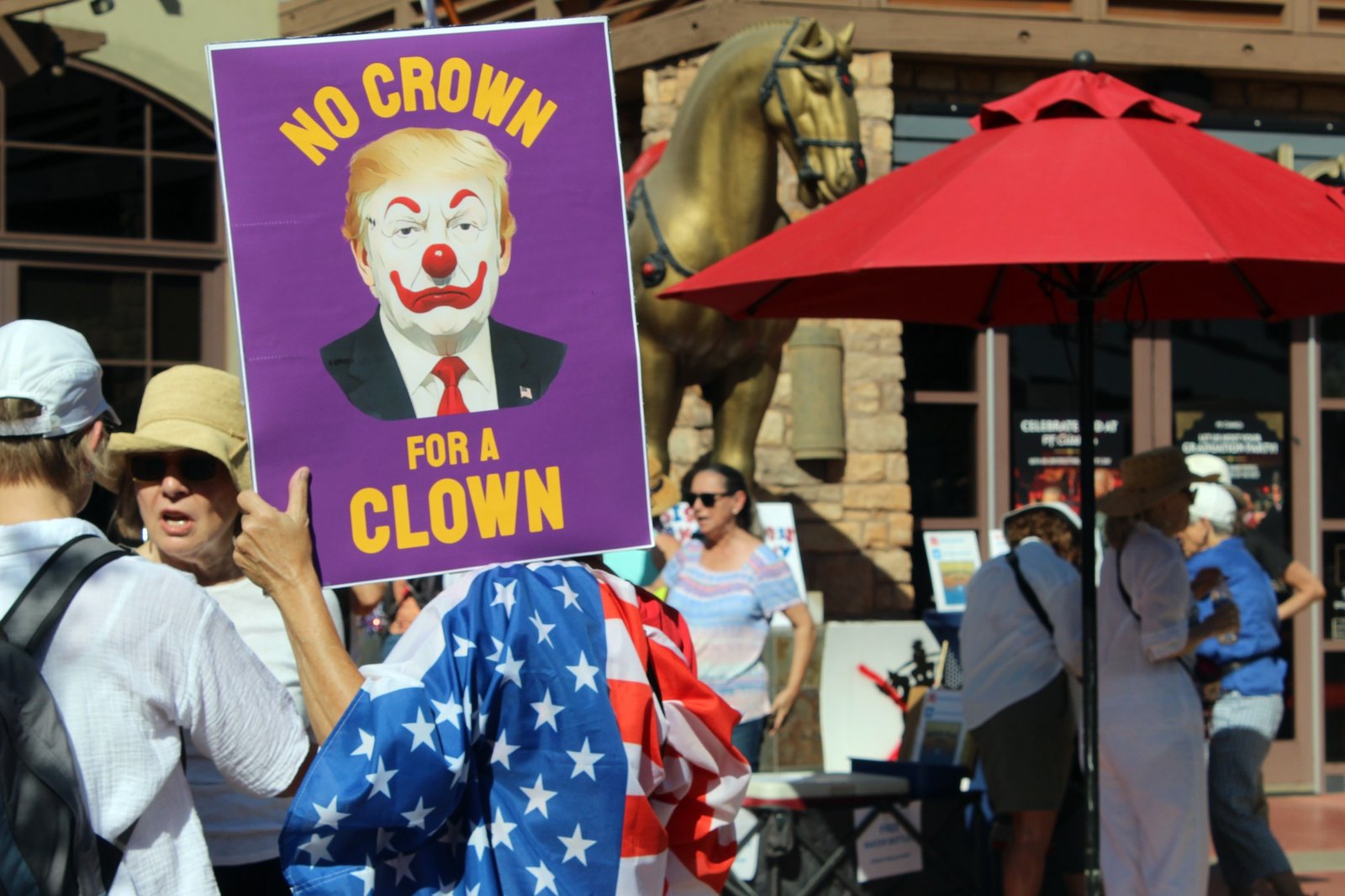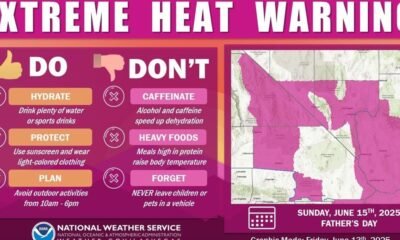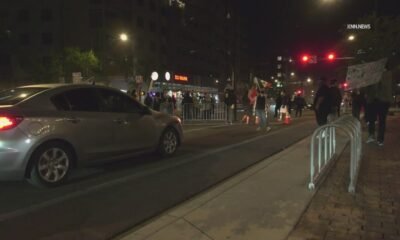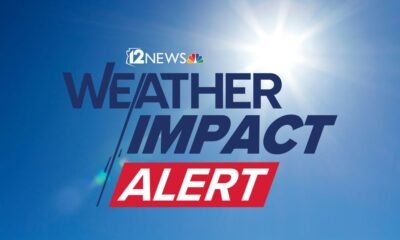abortion
Heat Can’t Stop Anti-Trump ‘No Kings’ Rallies from Thriving in Arizona

In Arizona, a wave of demonstrators took to the streets, fueled by frustration over President Donald Trump’s policies. Tens of thousands gathered in various locations, including the state Capitol, to voice their dissent on a national day of protest. The rallies coincided with Trump’s birthday, as he celebrated with a military parade in Washington D.C.
Saturday saw approximately 40 organized “No Kings” rallies across the state. One prominent gathering at the state Capitol in Phoenix drew an estimated 5,000 attendees, according to the Arizona Department of Public Safety. However, organizers claimed attendance was much higher, at 15,000.
Nationwide protests exceeded 2,000, expected to draw millions of participants. A mix of left-leaning and progressive organizations spearheaded the movement.
In stark contrast to events in cities like Los Angeles, Arizona’s protests remained peaceful. The only notable incident involved a confrontation between a protester and a driver in a pickup truck, where the driver snatched a flag and threw water at the crowd.
While the focus was largely on Trump and his administration’s immigration policies, speakers also addressed a tragic event involving the shooting of Minnesota Democratic lawmakers. Phoenix City Councilwoman Ana Hernandez emphasized the gravity of political violence, calling for unity and action.
Activism was the rally’s core message. “Showing up isn’t enough,” urged Kazz Fernandez of BlackNet Az. He encouraged attendees to engage with specific organizations tackling issues like voter rights, represented prominently at the Capitol.
The event also featured family-friendly performances by local drag artists, incorporating political themes relevant to the ongoing discussions about LGBTQ rights. Many attendees celebrated Pride month, displaying flags and advocating for the LGBTQ community.
Key themes included opposition to Trump’s mass deportation efforts, which have escalated in the Phoenix area. Federal agents employed high-tech surveillance aircraft in raids targeting individuals in public spaces.
Roberto Reveles, a civil rights advocate, highlighted the historical context of racism and immigration enforcement in Arizona. He pointed out that the fallout from past racial profiling policies still burdens taxpayers.
The rhetoric surrounding immigration dominated the protests, with flags representing various countries involved in deportation actions prominently displayed. Attendees echoed sentiments of solidarity and urgency as they marched around the Capitol.
In Tempe, another “No Kings” rally saw over 1,000 participants, with demonstrators voicing their concerns about the current political climate. Sean Kilburn, a lifelong resident, expressed frustration over lost rights and the state of democracy.
Cindy Mendoza, who attended with her family, voiced the fear inflicted by recent immigration enforcement actions. Her personal experiences shaped her activism, emphasizing the need for a united front against injustices.
The series of rallies demonstrated the mobilization of Arizonans around pressing issues, with an emphasis on coalition-building and sustained activism. Organizers announced future events, encouraging ongoing engagement from participants.
In adjacent Scottsdale, about 1,000 residents gathered despite extreme heat, demonstrating their discontent. Chants critical of Trump and his policies echoed through the area, as protesters highlighted a range of grievances, from social services to civil rights.
Kari Tannenbaum, among the attendees, criticized Trump’s apparent disregard for law and the Constitution, aligning her concerns with a call for political accountability. Others echoed similar sentiments, fearing a regression in democratic values.
Even in the high temperatures, people remained committed to the cause, reminiscing about historical struggles and the significance of their actions. Mike Yarnall articulated his motivations rooted in concern for future generations.
While local activists celebrated recent victories, such as protections for reproductive rights in Arizona, they remained vigilant about potential federal threats to these hard-won gains. Creating awareness and fostering political engagement emerged as vital themes of the protest.
As the rallies concluded, discussions around electoral contributions surfaced, aiming to shift the political landscape in upcoming elections. Activists noted Arizona’s significance as a battleground state, expressing hope for tangible changes in governance.


















